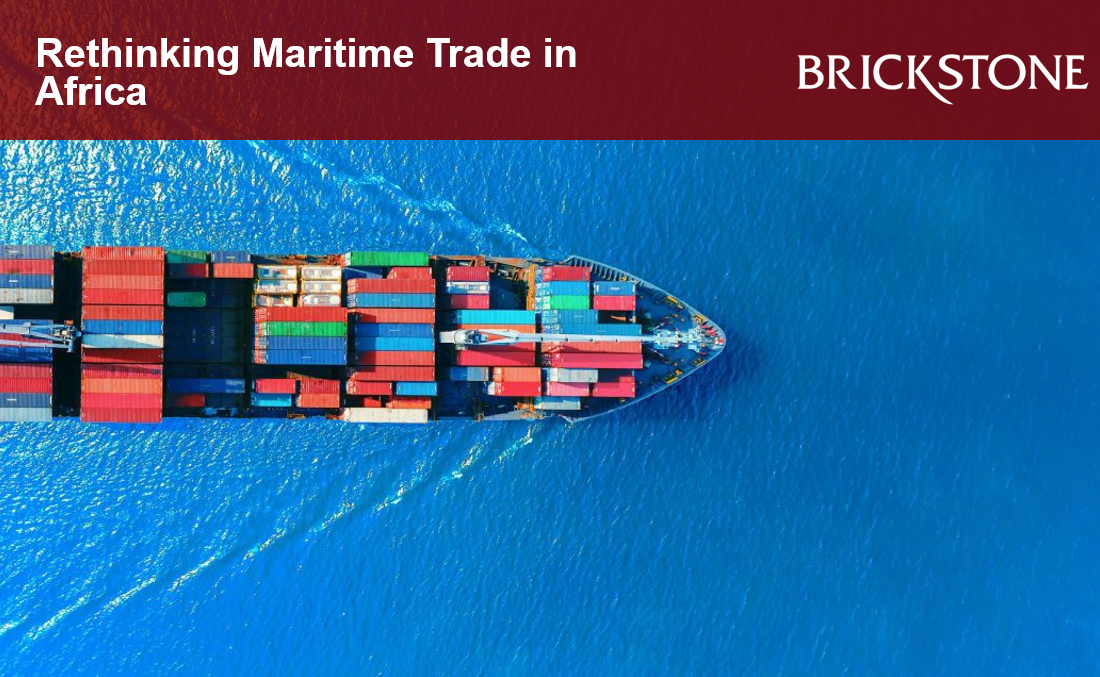Rethinking Maritime Trade in Africa
Maritime Trade in Africa
Maritime transport is the backbone of international trade and the global economy. According to the Shippers’ Authority, 80 percent of global trade by volume and over 70 percent of global trade by value are carried by sea and are handled by ports worldwide. These shares are even higher in the case of most developing countries.
Relatively, the contribution of the maritime trade in Africa to the continent’s economy is huge, representing over 80% of Africa’s trade; a notable growth rate accelerated by the intensification of trade relations with the Asian continent in particular. Yet, Africa shares about 3% of the world’s share of international freight transport, about 5% of world trade, less than 3% share of the global seafaring community and less than 3% of the world’s container traffic. This means that Africa’s share of global maritime trade still remains very weak. This is however as a result of the challenges that continue to weigh on the sector.
This raises the need for regional governments in Africa to collaborate to overcome these hurdles and equally harness the potential of the sector’s resources – as an enabler of growth, trade integration and prosperity.
This article by Brickstone reviews some institutional reports and publications on rethinking maritime trade in Africa to fully maximize the economic benefit presented by the ocean while preserving it.
Setting Up Maritime Trade in Africa for Exponential Growth
Maritime trade in Africa, particularly shipping, has the potential to play a significant role in the continent’s future growth and development. The sector, yet, remains fully untapped, due to challenges such as drop in maritime volumes due to global disruptions, absence of maritime sea power, weak port infrastructure, congested harbors, significant liner shipping connectivity issues, arbitrary fees, and so on. Maritime experts have bemoaned the rising number of these challenges within the sector, which should be addressed with the aim of ensuring efficient logistics and supply chain operations.
Africa isn’t a player in global maritime trade, despite 90% of its imports and exports being seaborne.
According to Business Day, experts have also predicted that African nations that can manage and secure their ships, ports and people, amongst other factors, will shape the future of the maritime industry in the region. Based on these painted scenarios, the world may experience booms and busts this decade (2021 – 2030) with significant consequences for shipping globally.
This is expected because the global economy is cyclic. When there is an economic expansion in the future, the economy of nations will improve significantly.
By 2050, it is projected that Africa’s population will triple in size with 60% being below the age of 34. The maritime trade in Africa needs to be developed to cater for this population group.
This will result in huge investments that will ultimately raise production and consumption, which ultimately will trigger economic growth globally. For African nations to benefit from global economic growth using the sea, they will improve shipping while protecting their maritime interests with the ultimate development of naval power.
Given that technology has a key role to play in naval power, one may want to know what forces are at work. Electronics, guided weapons and nuclear power have changed naval warfare more than four decades ago.
These factors have increased the cost of sea power. Navies that wish to control the oceans must pay the price for this privilege – access to costly weapon systems. Most African navies cannot afford these expensive and sophisticated weapon systems to keep the oceans safe, thereby slowing down maritime trade in Africa. The solution lies in collaboration of naval forces.
So, naval forces in Africa must sustain collaborative efforts in their sub-regional sphere of influence and interest. But we have observed that most African countries have weak economies as a result of their reliance on the sale of commodities, which are fast depleting in a knowledge-based global economy.
African nations must work effortlessly towards achieving the United Nations Sustainable Development Goals (SDGs), in particular, SDG 14 before the 2030 deadline. Essentially, the SDG 14 is to ensure that there is reduction in pollution at sea.
Read more on rethinking maritime trade in Africa here.






